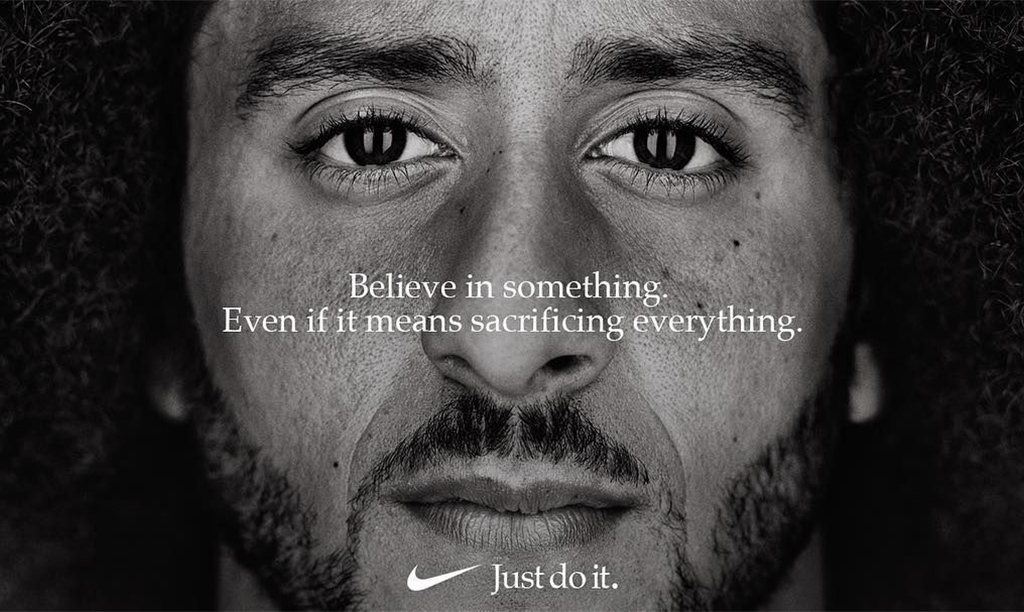Whiplash Team / Francesca Cordido, June 23rd 2023
Brands, the biggest influencers of our time
In today’s dynamic and interconnected world, brands have become the major cultural, moral, and political influencers, shaping the values, beliefs, and behaviors of individuals and societies.
One significant change in recent years is the growing expectation that brands take a clear stance on social and political issues. Consumers no longer settle for companies that remain neutral in the face of the challenges of our time.
Instead, they actively seek out brands that align with their values and demonstrate a commitment to social responsibility. This phenomenon presents a unique opportunity for brands to connect with their target audience at a deeper and more meaningful level.
Brands that embrace their role as cultural leaders have the potential to generate conversations, challenge social norms, and promote positive change. By leveraging their platforms, these brands can amplify marginalized voices, promote inclusion, and address critical issues such as climate change, racial justice, and gender equality.
In doing so, they establish themselves as thought leaders, gaining the trust and loyalty of consumers who share their values.
With power comes responsibility
However, assuming the role of a cultural leader comes with great responsibility. Brands must address social and political issues with authenticity, transparency, and sensitivity.
It is essential to understand the topics, conduct thorough research, and engage in meaningful dialogues with stakeholders to fully grasp societal concerns. This way, brands can avoid shallow activism and ensure that their actions align with their stated values.
Nike’s “Dream Crazy” campaign serves as an excellent example of a brand leveraging its influence to address a controversial issue. By featuring Colin Kaepernick, the former NFL player known for his protests against racial injustice, Nike made a bold statement about the importance of standing up for what one believes in.
While the campaign generated both praise and criticism, Nike remained true to its core values and ultimately reaped the rewards, experiencing an increase in sales and solidifying its position as a brand advocating for social justice.
Sustainability goes beyond mere statements
Beyond cultural leadership, brands also have a role to play in terms of business ethics. As companies increasingly prioritize purpose alongside profitability, they must integrate ethical considerations into their operations.
This involves adopting sustainable practices, ensuring fair working conditions, and respecting human rights throughout their supply chain. Brands that prioritize ethical conduct not only attract conscious consumers but also contribute to a more equitable and sustainable future.
Outdoor clothing company Patagonia has long been recognized for its commitment to environmental sustainability. From using recycled materials in its products to advocating for conservation initiatives, Patagonia has effectively positioned itself as a moral leader in the industry. By aligning their business practices with the values of their customers, the brand has cultivated a passionate community of advocates who take pride in supporting its mission.
However, it is important to note that brands must avoid “greenwashing” or engaging in empty gestures to appear ethical. Consumers are becoming increasingly discerning and can quickly detect superficial attempts to capitalize on social and environmental issues.
Authenticity and genuine commitment to positive change are key to maintaining consumer credibility and trust.
Taking a stance carries risks
In an era of polarization and increased political awareness, consumers expect brands to take a stand on issues affecting society as a whole. Whether advocating for immigration reform or supporting LGBTQ+ rights, brands have the potential to shape public opinion and drive policy changes.
However, when brands engage in political discussions, they must be prepared for potential criticism and controversy. Taking a clear position can alienate certain market segments, leading to boycotts or negative publicity. The recent case of Budweiser and its Bud Light campaign featuring transgender actor Dylan Mulveny as the brand’s spokesperson serves as a good example.
However, brands that remain neutral risk being perceived as complicit or irrelevant. Therefore, it is essential to assess the risks and have a deep understanding of the brand itself, ensuring that every action reflects its values and purpose clearly and consistently.




